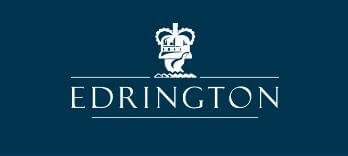Scotch whisky distiller Edrington sees profits fall by 21%

Scotch Whisky distiller Edrington has posted a profit before tax of £178.4 million - a drop of 21% from the previous year.
For the year ended 31 March 2021, the Glasgow-based firm’s core revenue stood at £576.2m, down 15% from 2020 while the company’s core contribution of £196.5m was 19% lower than that reported in 2020.
However, Edrington has said that while the results show a material decline in revenue and profit, these reflect a “better-than-expected performance” in an operating environment that included Brexit, US tariffs and the effects of the global pandemic.
The firm also announced that it has agreed to take a significant minority stake in the “ultra-premium” No.3 London Dry Gin, which is owned by Berry Bros & Rudd, a private, family business.
Edrington currently produces The Macallan, Highland Park and The Famous Grouse brands.
Discussing trading in the last financial year, Edrington said: “Edrington’s leading brand, The Macallan, saw a significant decline in contribution driven by a sharp contraction in global travel retail, closures of bars and restaurants and wholesaler destocking in the USA. However, consumer demand remained strong and the business pivoted to accelerate progress in new channels such as ecommerce.”
The firm added that The Macallan had seen “strong performances” in China, south-east Asia and Russia.
Commenting on the results, Scott McCroskie, chief executive, said: “In last year’s annual report, I anticipated a decline in profitability after several years of consistent growth, as a result of the Coronavirus pandemic and tariffs on Single Malt Scotch Whisky in the USA, our largest market. Our reported results confirm that this was indeed the case, although I believe that the relatively modest declines represent a good outcome in the circumstances.
“The reduction in net sales reflects pandemic-related restrictions as well as trade destocking primarily in the USA. Our decision to maintain relatively high levels of brand investment meant that core contribution reduced by more than net sales, although that was mitigated by a range of cost reduction measures. Our free cash flow and net debt both improved as a result of these measures, and I am pleased that the company remained well within its lending limits and banking covenant tests.”
He added: “I am proud of the way our people have responded to the pandemic, and of the results we have achieved. The fundamentals of our business are strong, and our brands are in good health. Although the pandemic will continue to impact our business for some time to come, I am encouraged by the growth in sales we have seen in the first quarter of this financial year. I am confident we can navigate the challenges we face and that we are ready to progress from a position of strength.”






